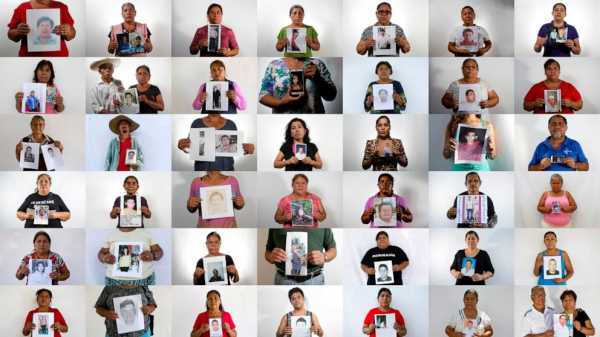
MEXICO CITY — The head of Mexico's commission leading the search for tens of thousands who have disappeared over past decades of violence has stepped down as critics accuse the government of trying to undermine the true numbers of the missing in the run-up to presidential elections.
Escalating cartel violence has increasingly eclipsed large swaths of Mexico, leaving thousands of Mexicans reported missing this year alone.
Karla Quintana, head of the National Search Commission, did not elaborate on the motives for her resignation, saying on Wednesday only that she is leaving her post “in light of current circumstances.”
“The challenges surrounding the disappearance of people remain," Quintana posted on X, the social platform formerly known as Twitter. "The State must continue to push for a comprehensive policy geared toward prevention, searching and fighting impunity.”
Populist President Andrés Manuel López Obrador's government has recently come under criticism for announcing it would carry out a census of the country's disappeared. Critics say this is a tactic to manipulate numbers and “ present a fictitious decrease ” in those missing ahead of elections next year.
More than 110,000 remain missing across the country, according to Quintana's commission figures — likely an undercount due to lack of reporting, distrust in authorities and endemic impunity. Many families of those disappeared have taken it upon themselves to seek justice, often with fatal consequences.
López Obrador appeared to approve the move by Quintana, whom he appointed in 2019. Speaking at his Thursday morning news conference, he said when asked about the resignation that it “closed a circle, and we are free.”
He added that his government continues to make progress in the search for the disappeared.
Last year, the special prosecutor leading an investigation into the notorious 2014 abduction and disappearances of 43 students in southern Mexico resigned, citing disagreements with the Attorney General’s Office. International watchdogs said at the time that his unit lacked support to collect evidence and carry out judicial proceedings.
Meanwhile, human rights groups — including the Center for Human Rights Miguel Agustín Pro Juárez — expressed concerns about Quintana's resignation, saying that moves by López Obrador would “reverse advances” made in the effort to track down the missing and bring perpetrators to justice.
Quintana and her team's work “put a previously languishing state institution on its feet,” shining a light on the "crisis of disappearances while facing resistance from prosecutors," the center said.
The phenomenon of Mexico’s disappearances exploded in 2006 when authorities declared war on the drug cartels. For years, the government looked the other way as violence increased and families of the missing were forced to become detectives.
Since then, cartels controlling trafficking in the country have broken into factions and warred with each other for territory, only deepening the violence.
In 2018, a law was passed laying the legal foundations for the government to establish the National Search Commission. There followed local commissions in every state; protocols that separated searches from investigations, and a temporary and independent body of national and international technical experts supported by the United Nations to help clear the backlog of unidentified remains.
Sourse: abcnews.go.com






